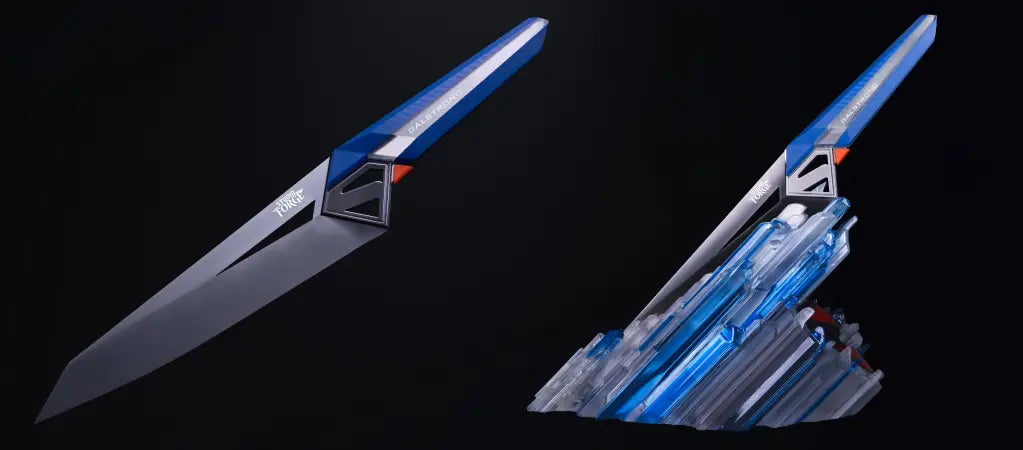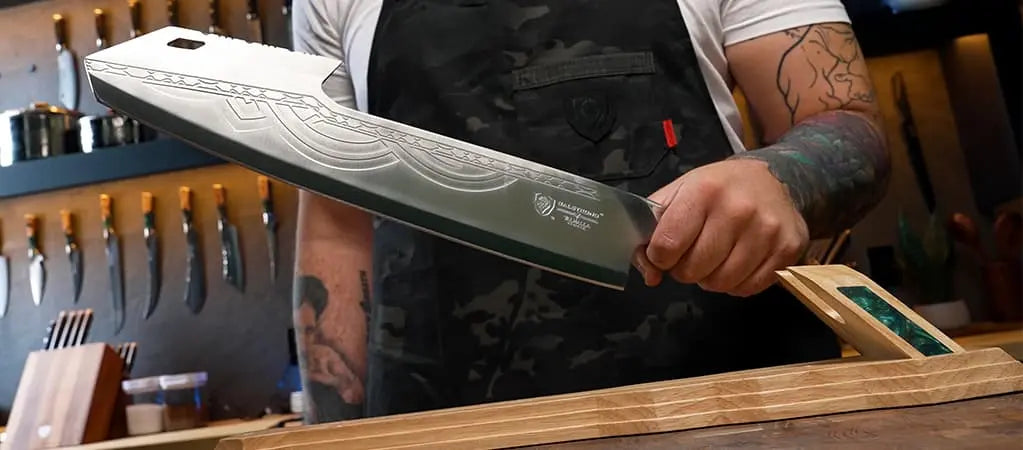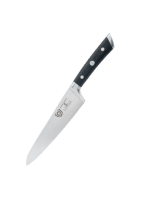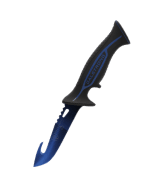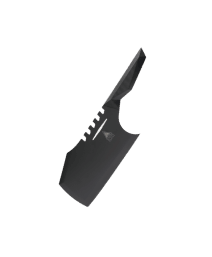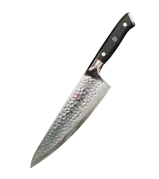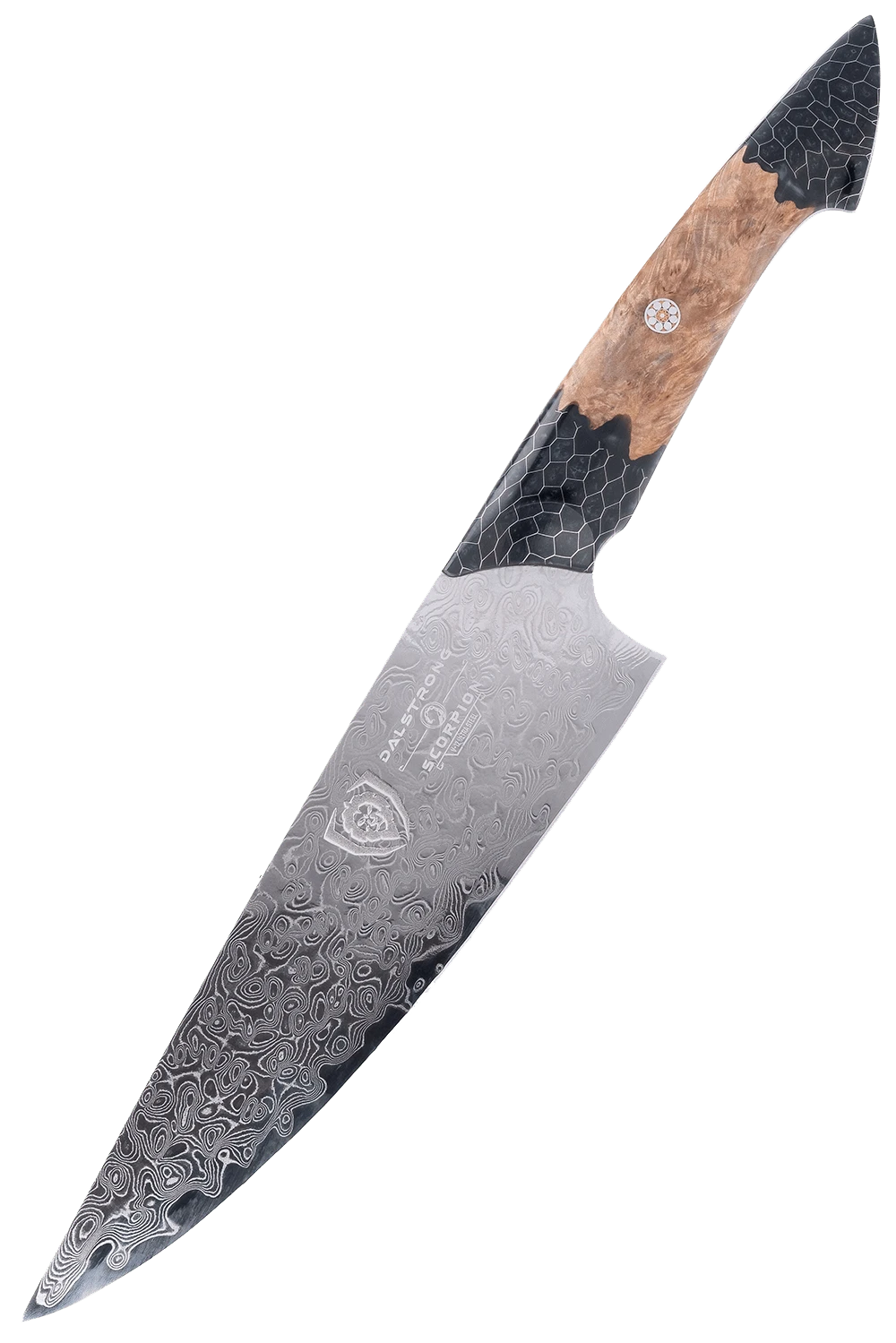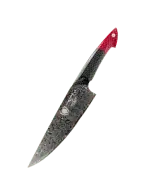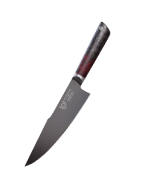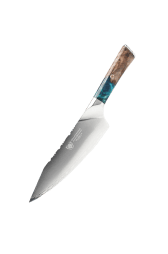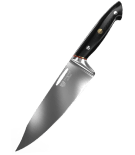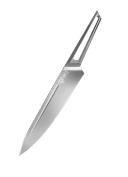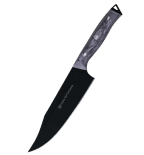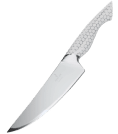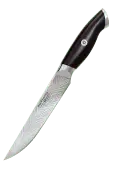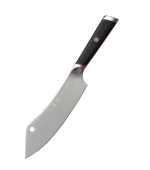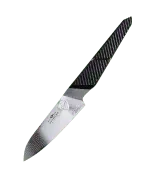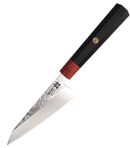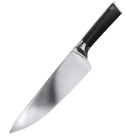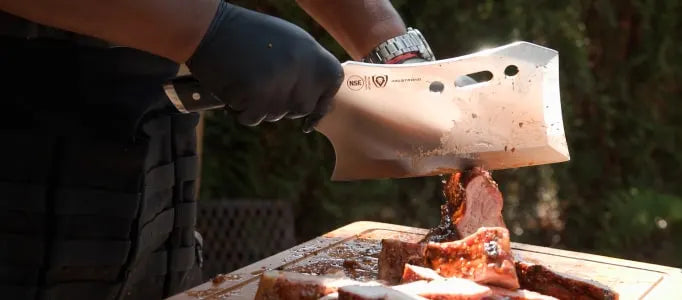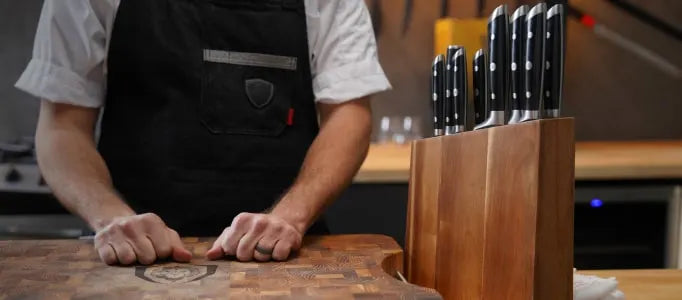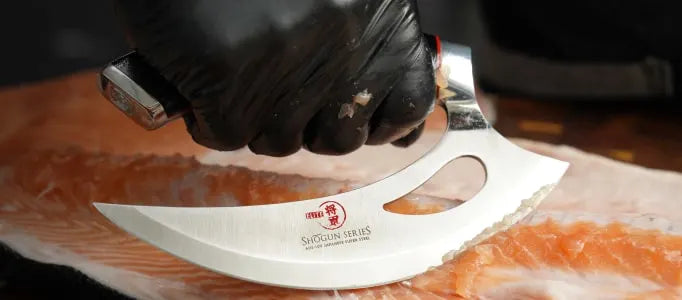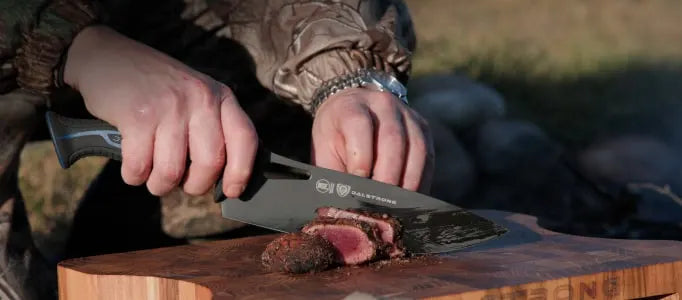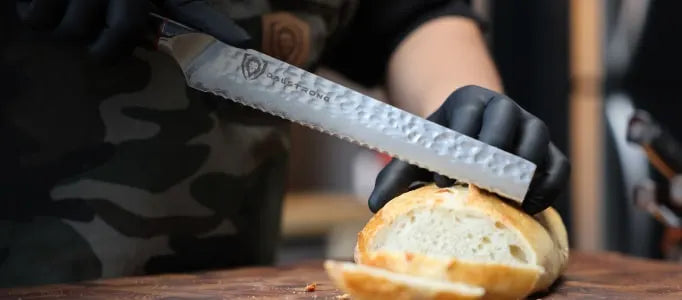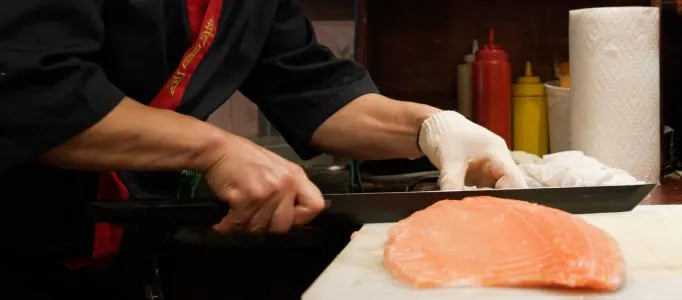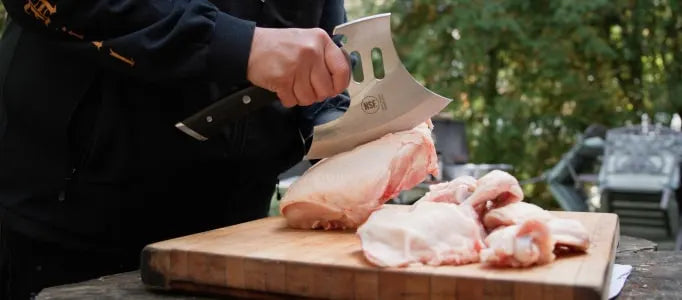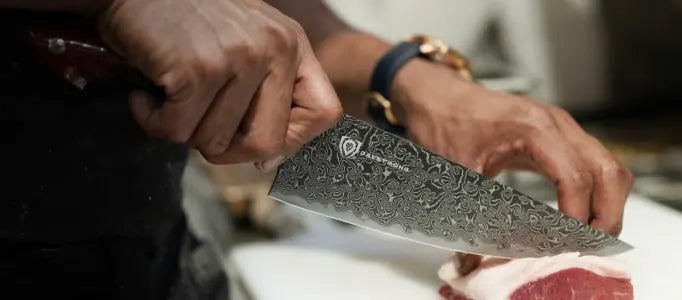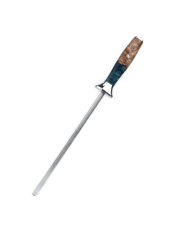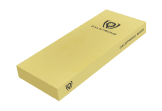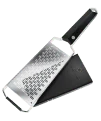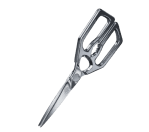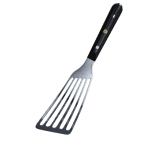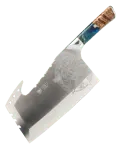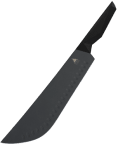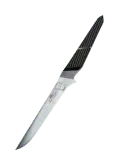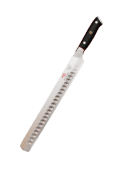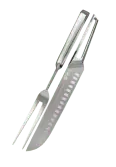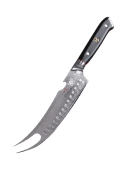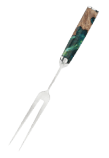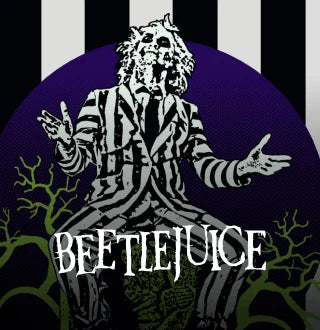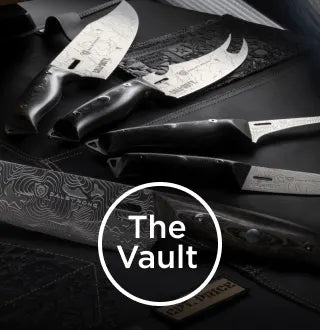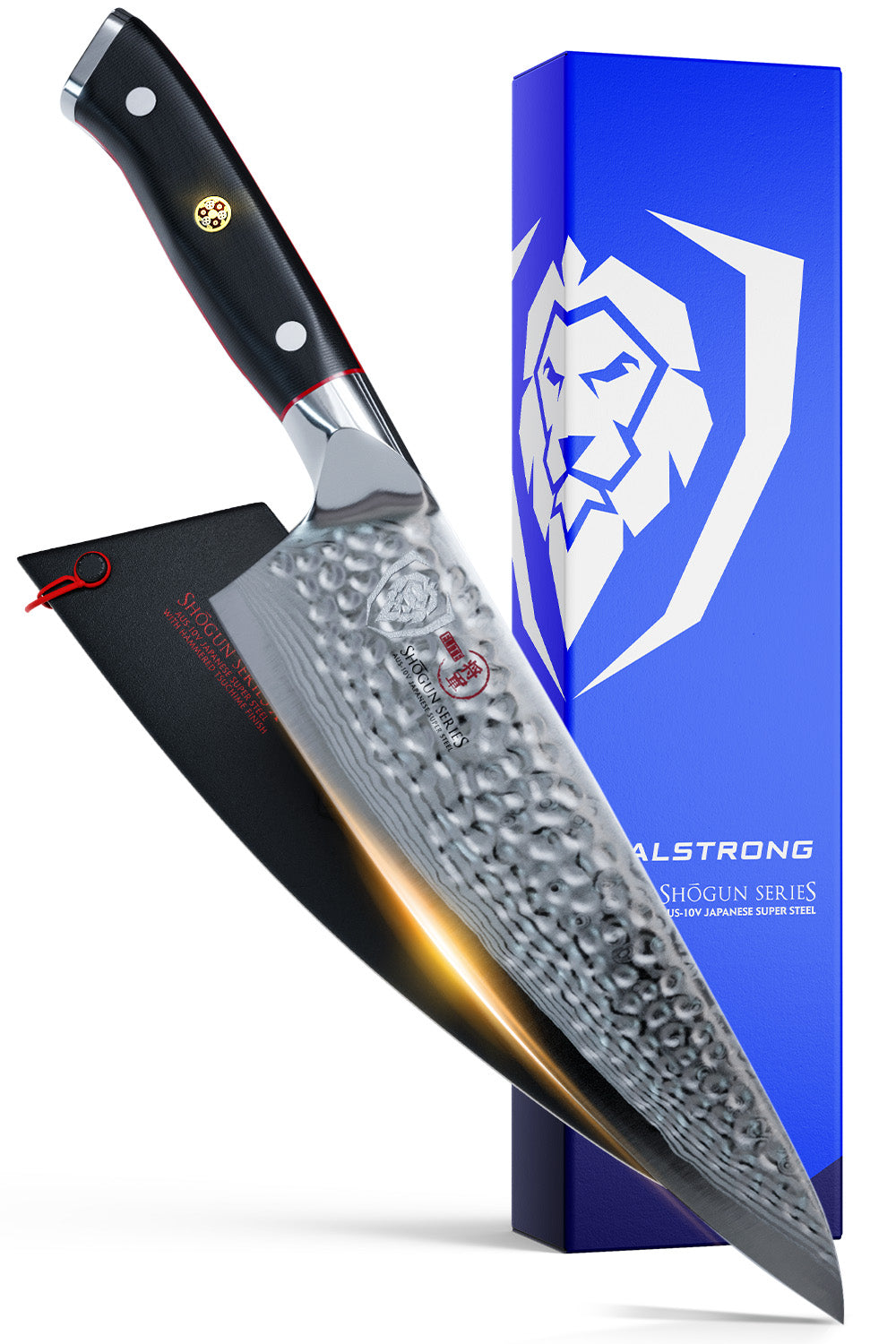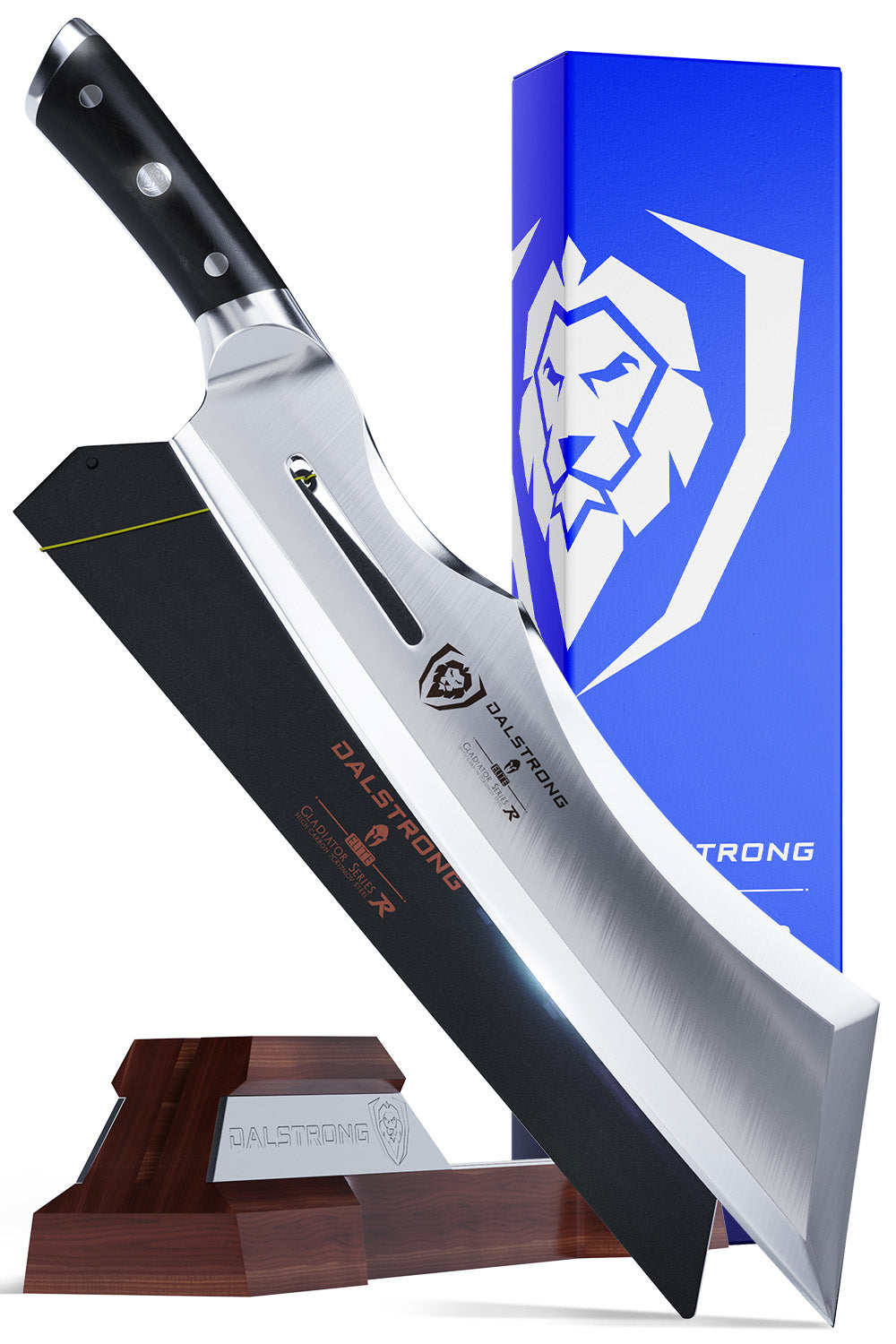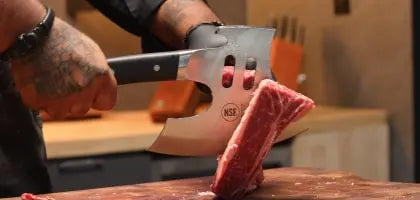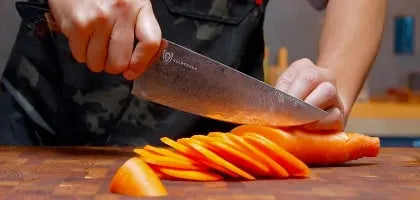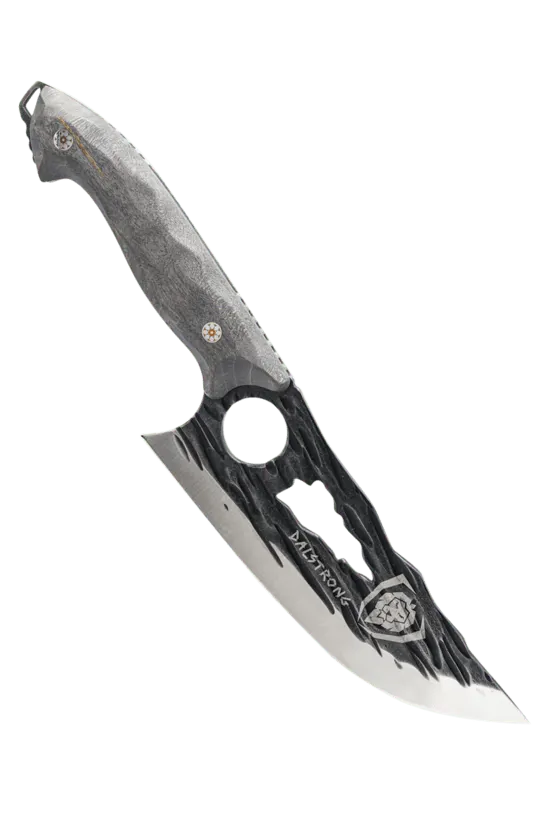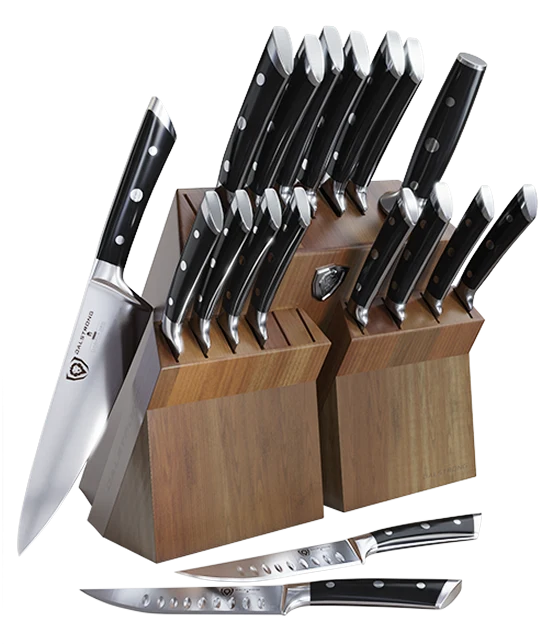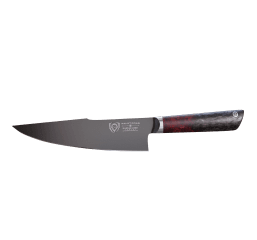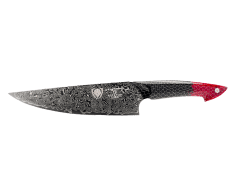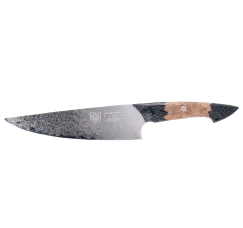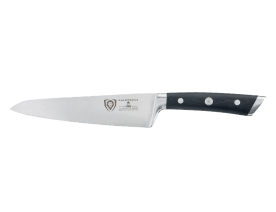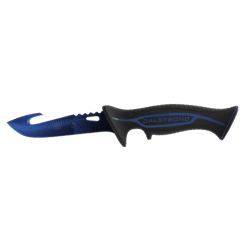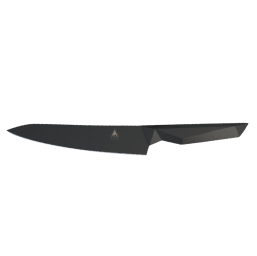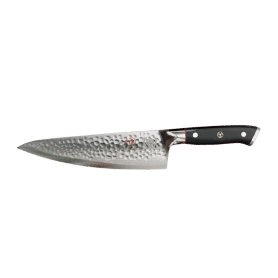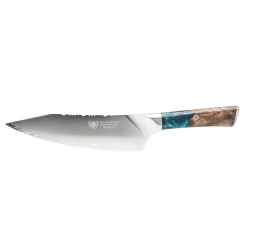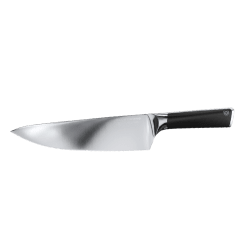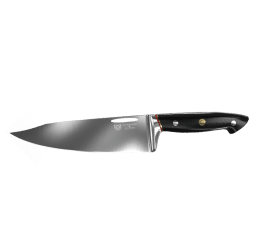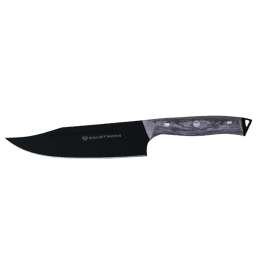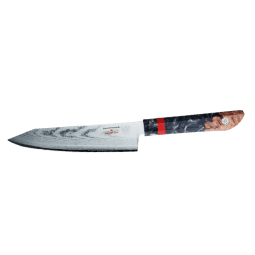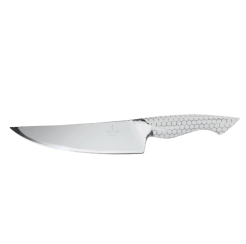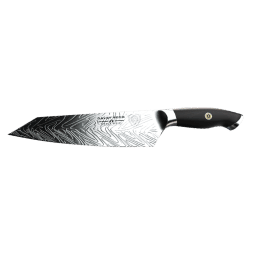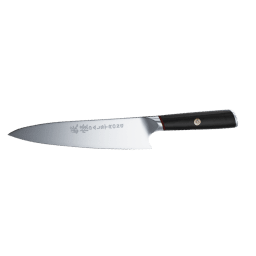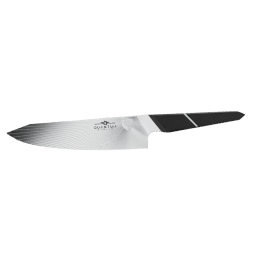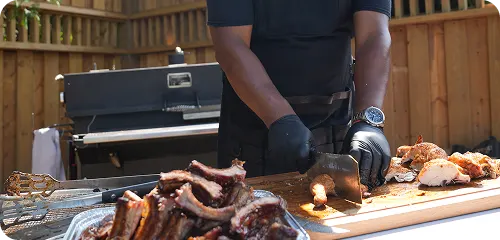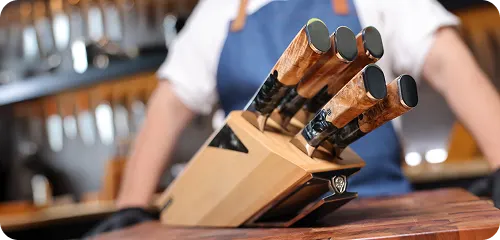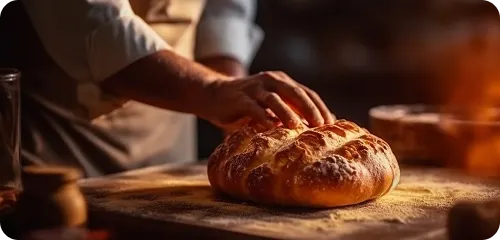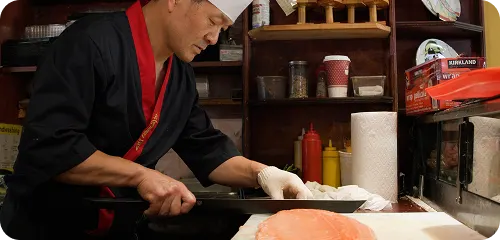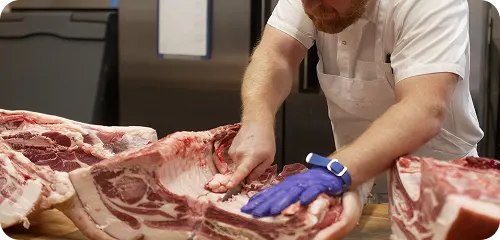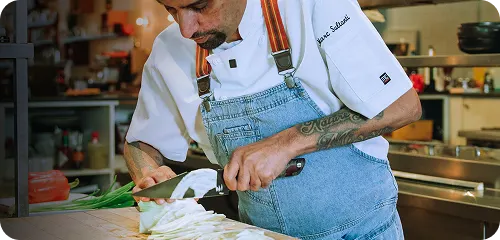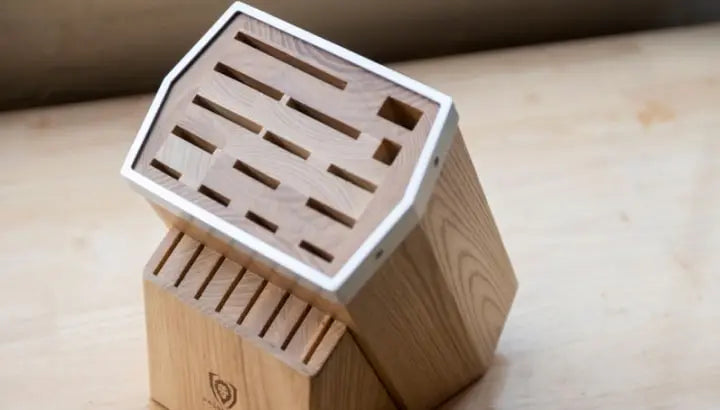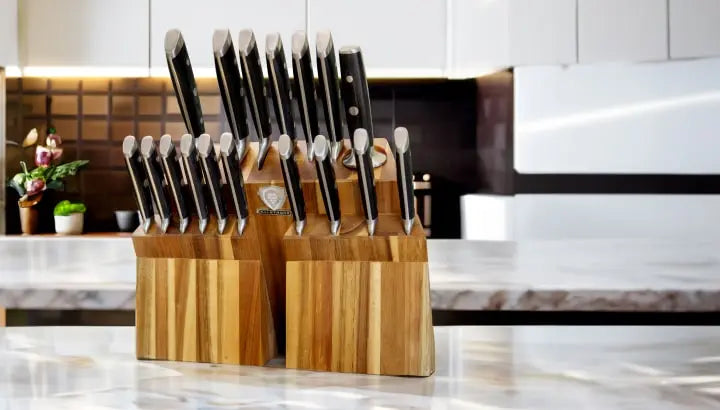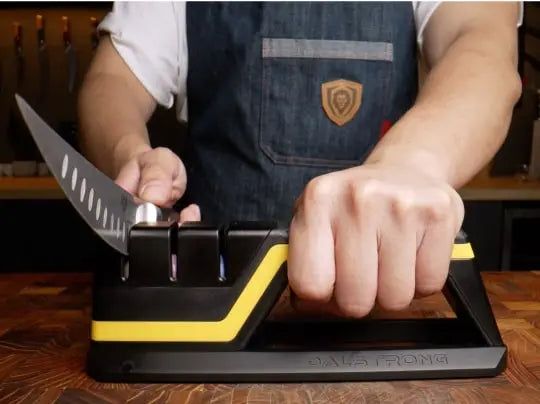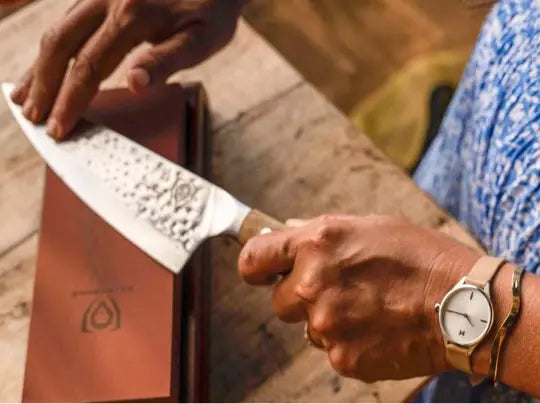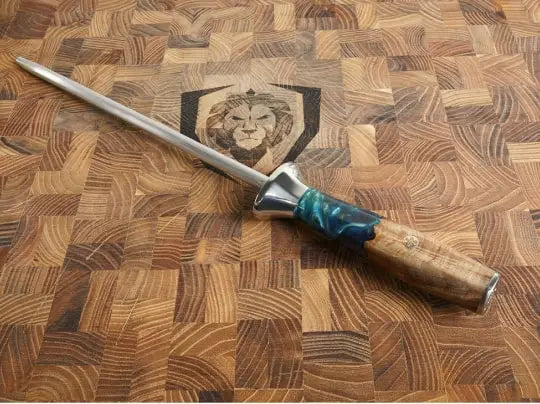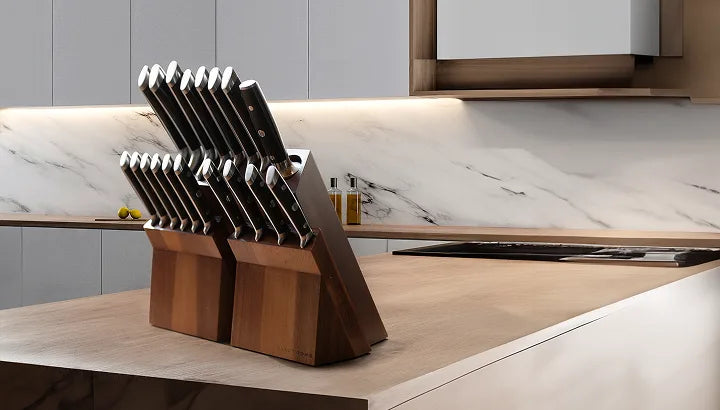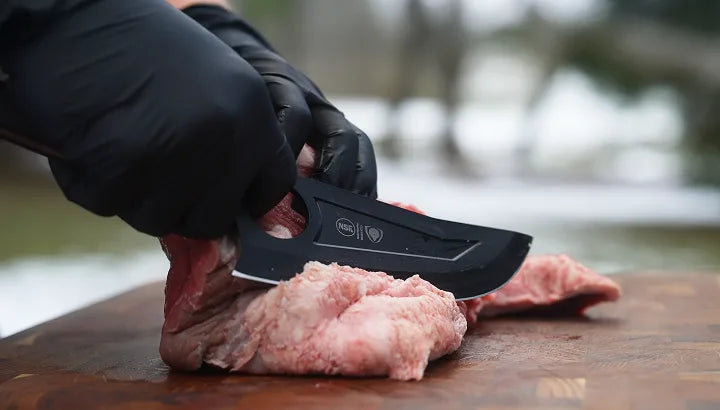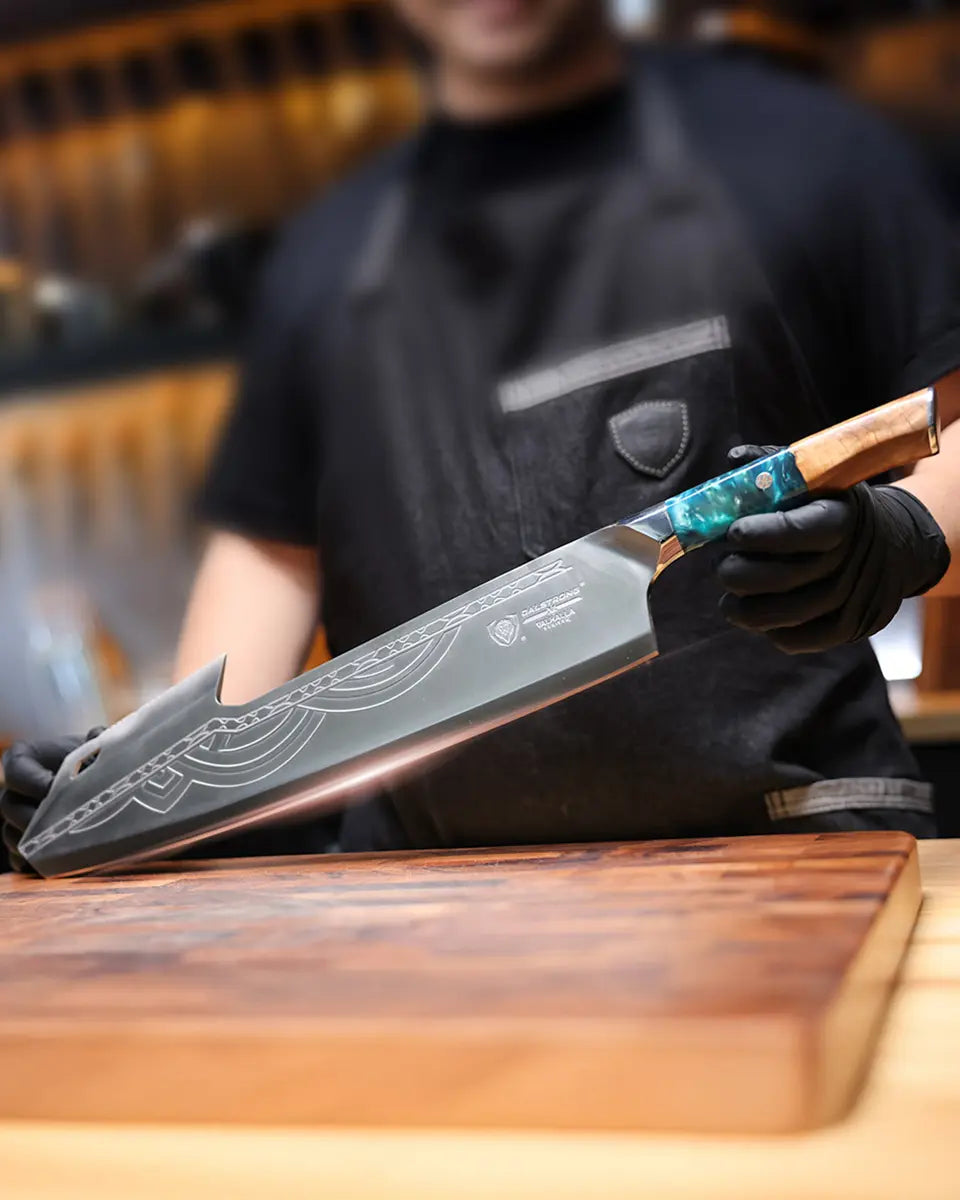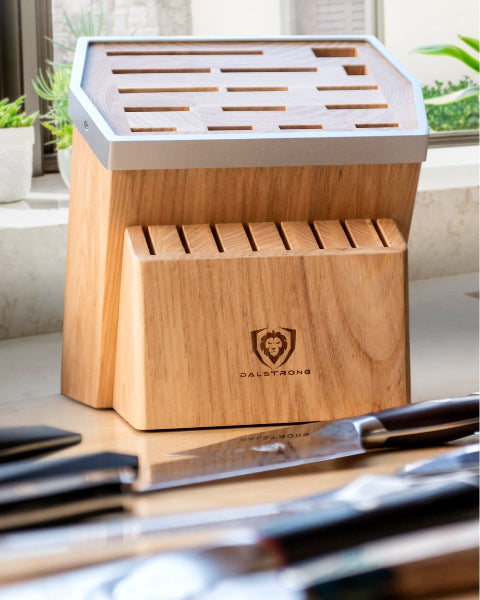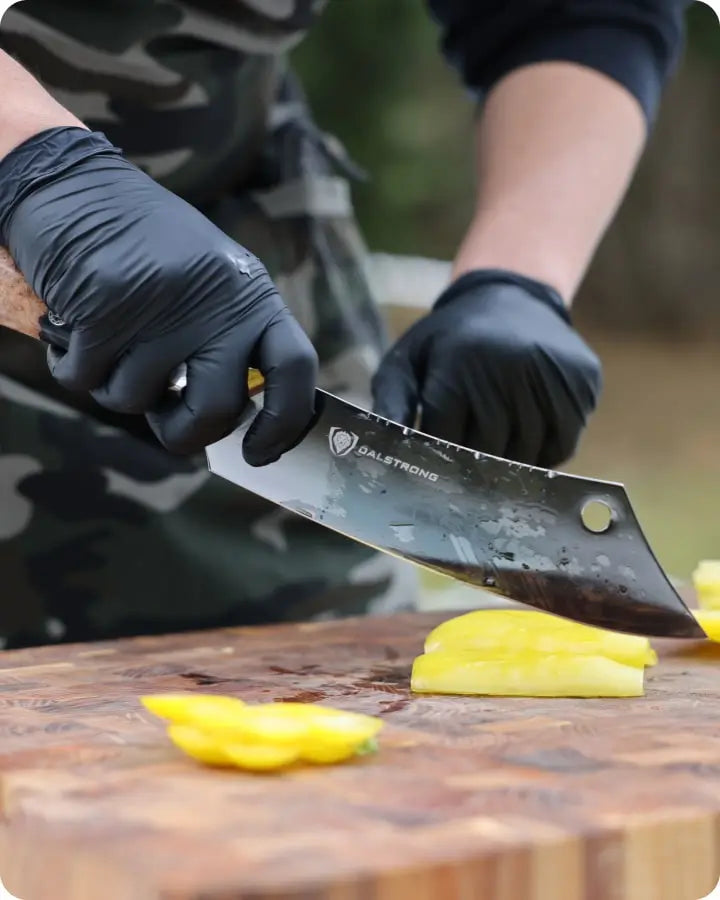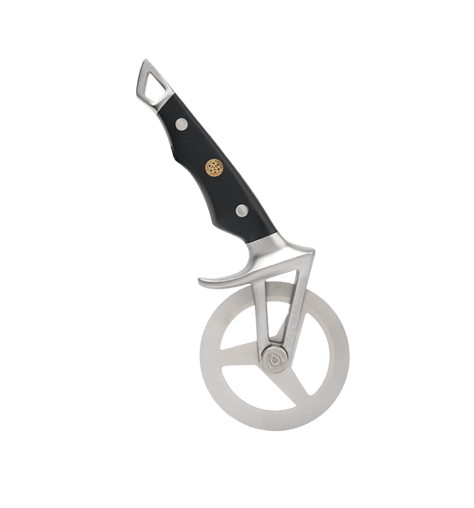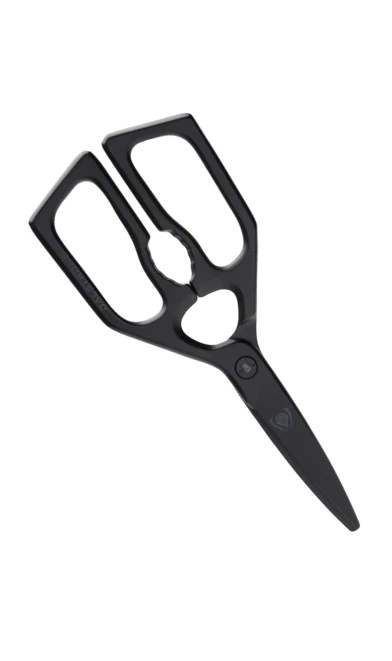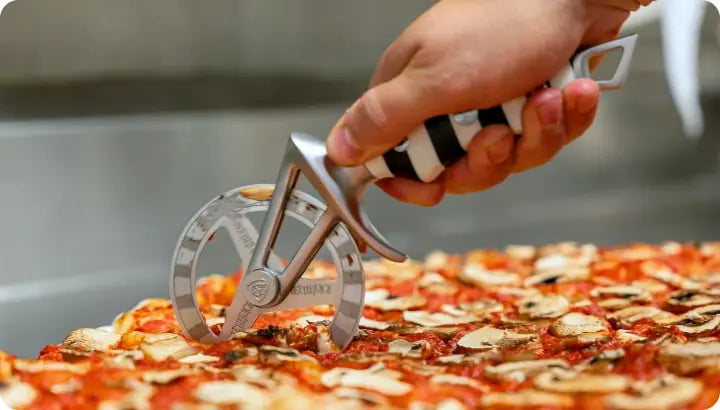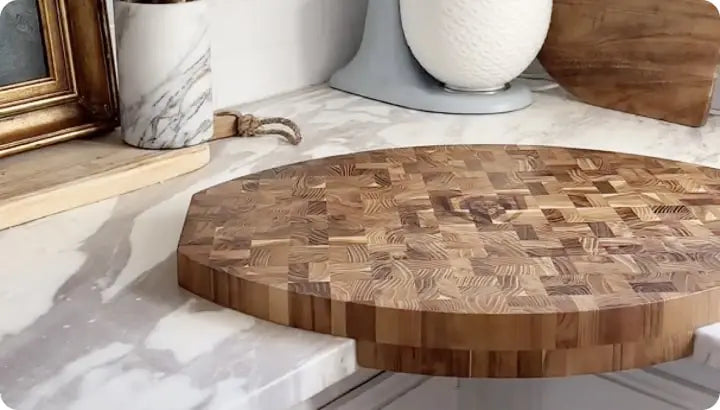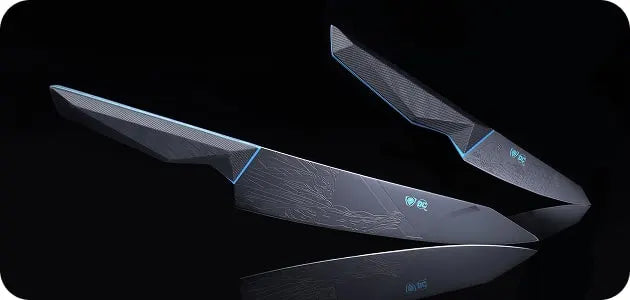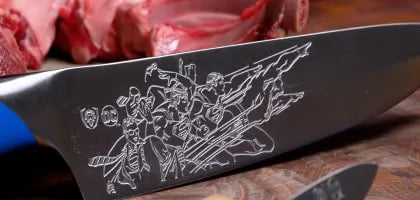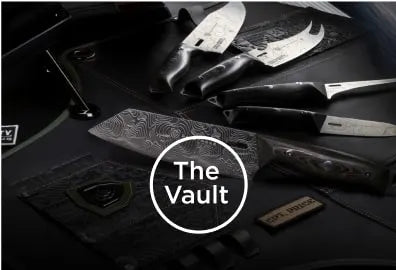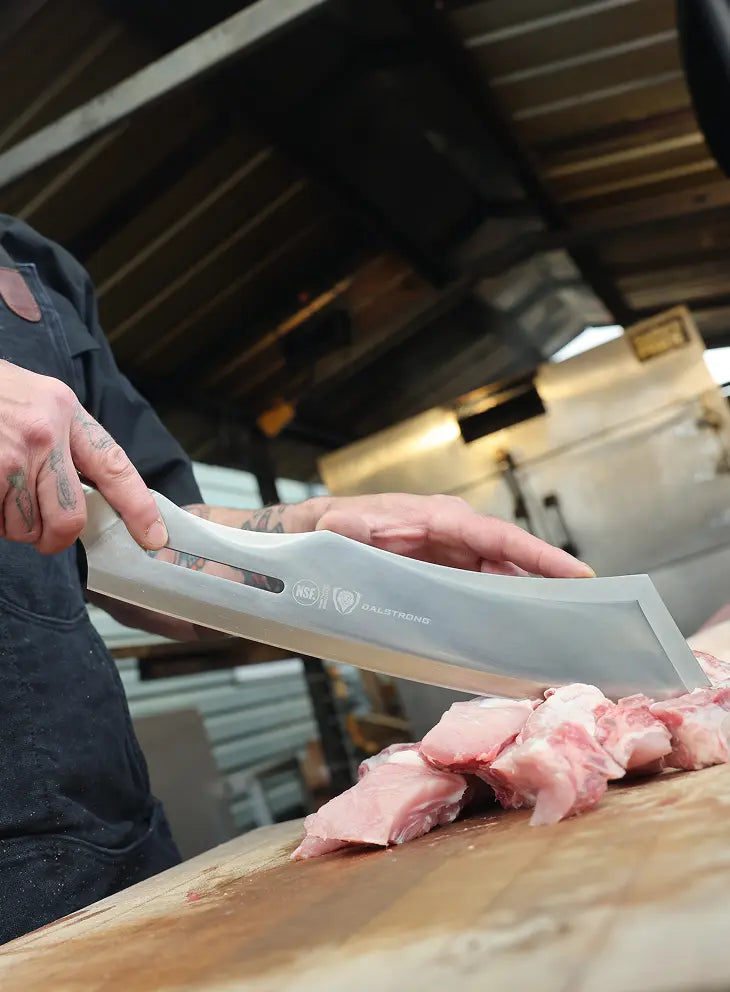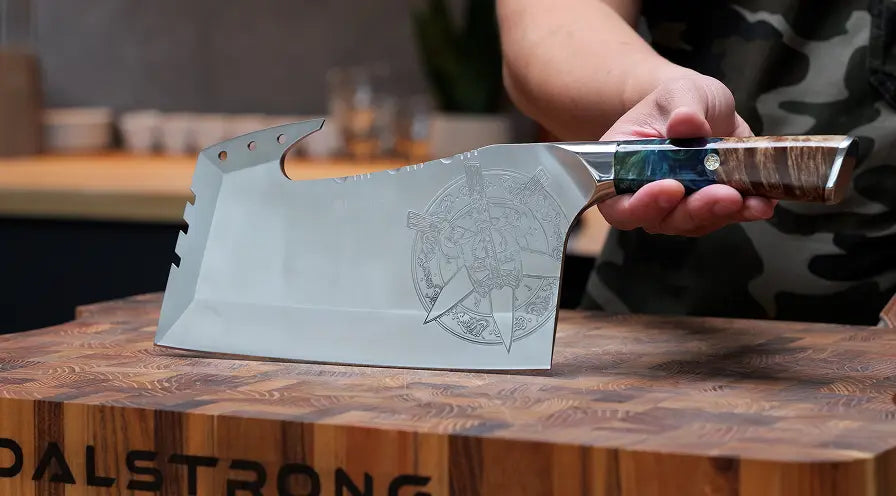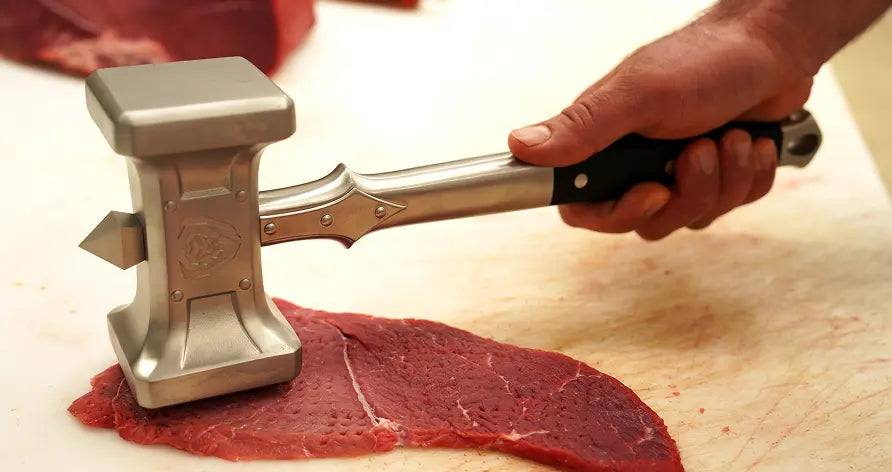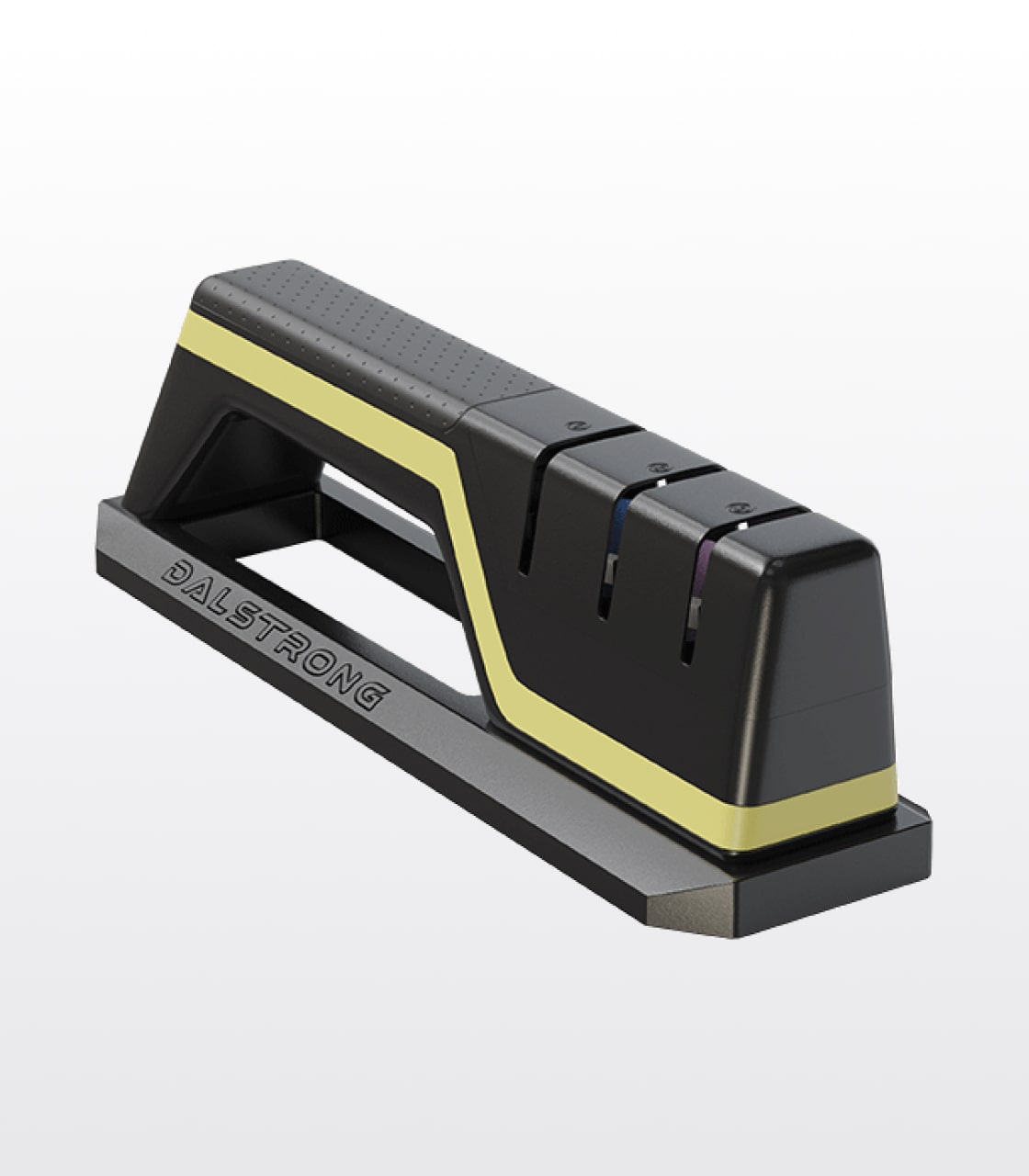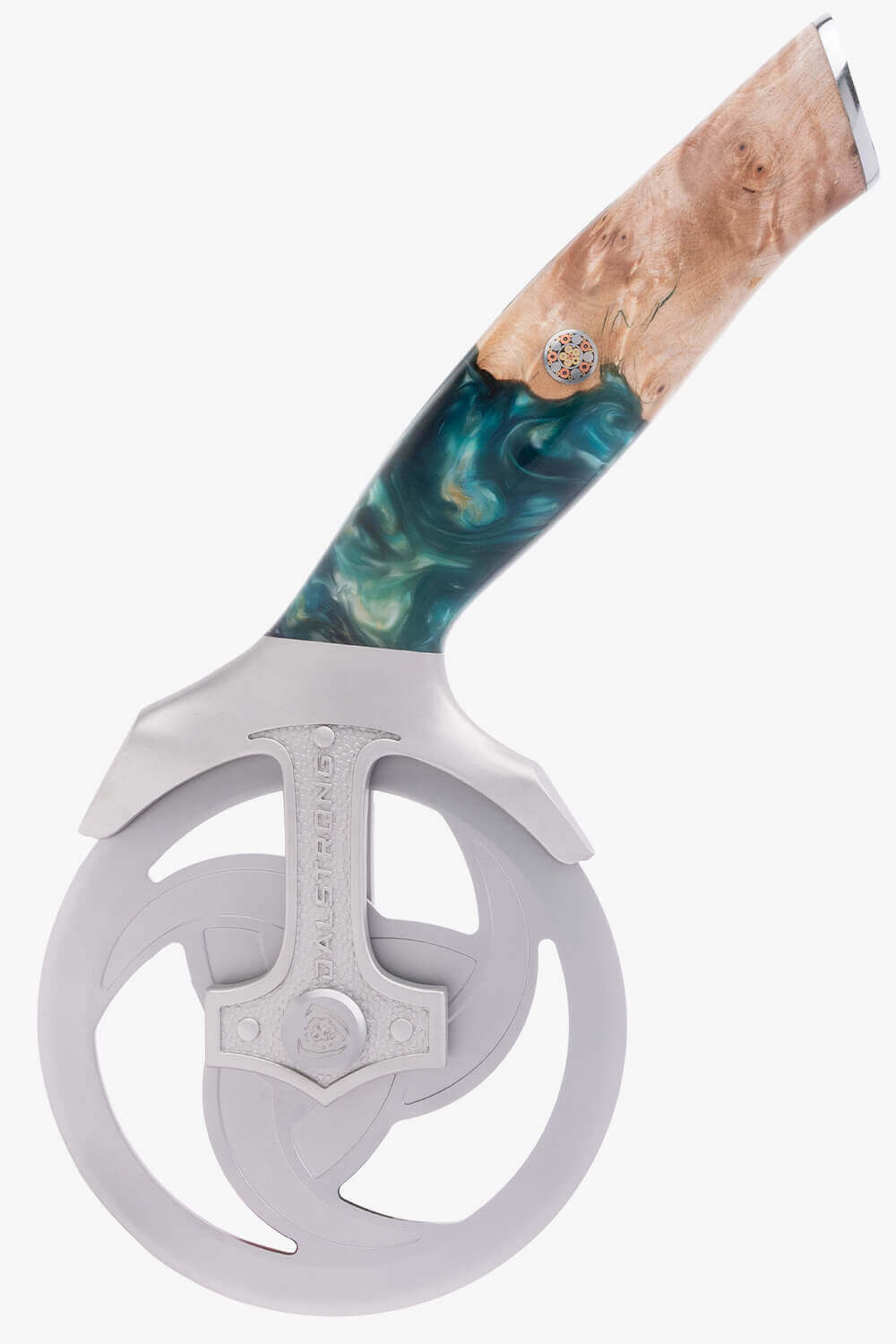9" Frying Pan & Skillet ETERNA Non-stick Oberon Series Dalstrong
Quick Overview: How To Clean Burnt Stainless Steel Pans
- Soak the stainless steel pan in vinegar:
- Scrub with Aluminum Foil.
- For persistent stains, use a scrubbing pad or a brush with soft bristles.
- Rinse thoroughly.
- Dry and buff.
- Season the pan, and you’re good to go!
Cleaning a stubborn or burnt pan is quite a pain when you’re done cleaning your dishes. But it doesn’t have to be. Here’s everything you need to know about cleaning a burnt stainless steel pan with ease and without much armwork. Let’s get right into it!
1. Methods On How To Clean Burnt Stainless Steel Pans
 12" Frying Pan & Skillet Silver Oberon Series Dalstrong
12" Frying Pan & Skillet Silver Oberon Series Dalstrong
Cleaning burnt stainless steel pans can be overwhelming especially if it's your first time. But with the right methods and some elbow grease, you'll be surprised how easy it is to restore them to their shiny state. Here are effective methods to clean burnt stainless steel pans.
Gather Your Supplies:
To clean burnt stainless steel pans, you'll need aluminum foil, baking soda, hydrogen peroxide, and a scrubbing pad.
Preparation:
Start by scraping off any large burnt food particles with a spatula or a knife. This initial step helps remove the worst of the burnt mess.
Boiling Water and Baking Soda:
Fill the burnt pan with water and add a few tablespoons of baking soda. Boil this mixture for about 10-15 minutes. Baking soda is mildly abrasive and helps loosen burnt-on food.
Scrub with Aluminum Foil:
After boiling, let the pan cool slightly. Then, screw up a piece of aluminum foil and use it to scrub the burnt areas. The foil's abrasive surface will aid in removing stubborn burnt residues.
Hydrogen Peroxide:
For more stubborn stains, create a paste using baking soda and hydrogen peroxide. Apply this paste to the burnt areas and let it sit for a few minutes before scrubbing with a scrubbing pad.
White Vinegar:
Another effective method is to fill the pan with a mixture of white vinegar and water. Allow it to soak for a few hours or overnight. This will help break down burnt-on residues.
Scrubbing Pad:
Use a scrubbing pad or a brush with soft bristles to gently scrub the pan. Be careful not to use anything too abrasive, as it can scratch the stainless steel surface.
Rinse and Dry:
Rinse the pan entirely with warm water to remove any cleaning residue. Dry it with a clean cloth or paper towel to prevent water spots.
Season the Pan:
To maintain the stainless steel's shine and prevent future sticking, consider lightly coating the pan with a fine layer of oil and heating it on low for a few minutes. This helps season the pan.
Regular Maintenance:
To avoid future burnt messes, use low to medium heat when cooking, and monitor your cooking closely. Also, consider using non-stick pans for foods prone to sticking.
Read about how to use, store, and care about your stainless steel cookware here.
By following these cleaning methods for burnt stainless steel pans, you can effectively remove burnt-on residues and maintain the integrity of your cookware.
2. How to Clean Discolored Stainless Steel Pans
 12" Skillet Frying Pan Hammered Finish Silver Avalon Series Dalstrong
12" Skillet Frying Pan Hammered Finish Silver Avalon Series Dalstrong
Cleaning discolored stainless steel pans can restore their shine and appearance. Discoloration often occurs due to heat, food residues, or mineral deposits. Here's a comprehensive guide on how to clean discolored stainless steel pans.
- Gather Your Supplies: To clean discolored stainless steel pans, you'll need white vinegar, baking soda, hydrogen peroxide, a scrubbing pad, and aluminum foil.
- Vinegar Soak: Fill the discolored pan with a mix of equal parts white vinegar and water. Let it soak for an hour or more. Vinegar is effective at breaking down mineral deposits and discoloration.
- Baking Soda Paste: Make a paste using baking soda and a small amount of water. Apply this paste to the discolored areas and gently scrub with a scrubbing pad. Baking soda acts as a mild harsh and helps lift stains.
- Hydrogen Peroxide: For stubborn discoloration, you can mix hydrogen peroxide with baking soda to create a paste. Apply it to the discolored spots and let it sit for a few minutes before scrubbing.
- Scrubbing with Aluminum Foil: For tough stains, crumple up a piece of aluminum foil and use it to scrub the discolored areas. The foil's abrasive surface can help remove stubborn stains.
- Rinse Thoroughly: After scrubbing, rinse the pan thoroughly with warm water to remove any residue from the cleaning agents.
- Dry and Buff: Use a clean, dry cloth or paper towels to dry the pan and buff it to a shine. This step prevents water spots and enhances the stainless steel's appearance.
- Season the Pan: To prevent future discoloration, consider lightly coating the pan with a thin layer of oil and heating it on low for a few minutes. This helps maintain the stainless steel's protective layer.
- Regular Maintenance: To keep away from discoloration, clean your stainless steel pans after each use, especially if they've been exposed to high heat. Avoid using harsh scouring pads or abrasive cleaners.
- Use Non-Abrasive Products: When cleaning, ensure you're using non-abrasive cleaning products to avoid scratching the stainless steel surface.
3. General Care And Maintenance For Stainless Steel Pans
 10" Frying Pan & Skillet ETERNA Non-Stick Oberon Series Dalstrong
10" Frying Pan & Skillet ETERNA Non-Stick Oberon Series Dalstrong
Proper care and maintenance of stainless steel pans are essential to keep them in excellent condition and prolong their lifespan. Here's a comprehensive guide on general care and maintenance for stainless steel pans.
Cleaning Stainless Steel Pans:
- Baking Soda: Baking soda is a gentle abrasive that helps remove food residues. Create a paste with baking soda and water, apply it to the pan, and scrub with a non-abrasive pad.
- White Vinegar: To remove stains or discoloration, soak the pan in a mixture of equal parts white vinegar and water.
- Regular Cleaning: Clean your stainless steel pans promptly after each use to prevent food from sticking and staining the surface.
- Avoid High Heat: Stainless steel can discolor when exposed to high heat for extended periods. Use low to medium heat settings to avoid overheating.
- Seasoning: Seasoning stainless steel pans with a thin layer of oil after each use can help maintain their non-stick properties and prevent food from sticking.
- Use Wooden or Silicone Utensils: Don't use metal utensils as they can scratch the surface. Opt for wooden or silicone utensils that won't damage the pan.
- Avoid Cooking Acidic Foods: Stainless steel can react with acidic foods, causing discoloration. Limit cooking acidic dish soap and use other cookware for such recipes.
- Preheat the Pan: Preheat the pan prior to adding oil or food. A properly heated pan is less likely to have food stuck to it.
- Pat Dry: After washing, make sure to thoroughly pat the pan dry with a towel to prevent water spots and potential rusting.
- Avoid Stacking: When storing your stainless steel pans, avoid stacking them directly on top of each other. Use protective pads or kitchen towels to prevent scratches.
- Routine Inspection: Regularly inspect your pans for signs of wear or damage. Replace them if you notice deep scratches, warping, or other issues that affect their performance.
- Follow Manufacturer Instructions: Always follow any specific care and maintenance instructions given by the manufacturer of your stainless steel pans.
- Re-season as Needed: Over time, the seasoning on stainless steel pans may wear off. Re-season them periodically by applying a thin layer of oil and heating the pan on low heat.
- Store Properly: Store your stainless steel pans in a chilly, dry place to prevent moisture buildup and rust.
4. Recommended Dalstrong Stainless Steel Pans
1. 9" Frying Pan & Skillet ETERNA Non-stick | Oberon Series
The Dalstrong Oberon Series 3-Ply Aluminum-Core Cookware is a high-performance and durable kitchen companion with Eterna® non-stick coating, offering exceptional conductivity and versatility for various cooking needs.
PROS:
- The 3-ply aluminum-core design ensures fast and even heating, making it perfect for cooking a wide range of dishes with precision.
- Fused layers of non-reactive 18/10 stainless steel and the world's longest-lasting Eterna® non-stick coating make this cookware built to last, with a 2.5mm ultra-strong thickness that resists denting or warping.
- Compatible with all stovetops, optimized for induction, and safe for use in ovens, broilers, freezers, dishwashers, and refrigerators, providing flexibility and convenience in the kitchen.
CONS:
- While offering excellent quality and durability, the Dalstrong Oberon Series cookware may be on the higher end of the price spectrum, which could be a consideration for budget-conscious shoppers.
- The included 9" Eterna non-stick frying pan and skillet are versatile, but those seeking a wider range of sizes for specific cooking needs might need to supplement their collection with additional pieces.
2. 12" Skillet Frying Pan Hammered Finish Silver | Avalon Series
The Dalstrong 5-Ply Avalon Series Cookware, inspired by the mythical island of Excalibur, combines stunning design with exceptional performance, featuring a 5-ply Copper Forged Foundation for unrivalled conductivity and versatility in the kitchen.
PROS:
- The 5-ply Copper Forged Foundation offers exceptional heat conductivity, heating 5 times better than iron and 20 times better than stainless steel, ensuring precise temperature control for perfect cooking results.
- Crafted with additional layers of smudge-free aluminum and 18/10 stainless steel, this cookware is ultra-strong with a 2.5mm thickness that won't dent or warp under prolonged heat.
- With compatibility across all stovetops, including induction, and an eye-catching design, the Avalon Series adds a touch of luxury to your kitchen while delivering top-notch performance.
CONS:
- While offering exceptional quality and performance, the Dalstrong Avalon Series cookware may be at a premium price point, which could be a consideration for budget-conscious folks.
- The included 12" skillet frying pan is versatile, but those seeking a wider range of sizes for specific cooking needs might need to supplement their collection with additional pieces.
3. 10" Frying Pan & Skillet ETERNA Non-Stick | Oberon Series
The Dalstrong Oberon Series 3-Ply Aluminum-Core Cookware, inspired by the mythical king Oberon, combines high performance with a durable design, featuring a world-class Eterna® non-stick coating and cladding technology for exceptional cooking results.
PROS:
- This 3-ply aluminum cookware with Eterna® non-stick coating offers impeccable heat conductivity, ensuring quick and even cooking from thick proteins to delicate omelettes.
- Using cladding technology, it fuses additional layers of nonreactive stainless steel for durability.
- Suitable with all stovetops, including induction, oven and broiler safe up to 500 degrees F, and freezer, dish soap, and refrigerator safe, it ensures convenience and safety in the kitchen.
CONS:
- The included 10" Eterna non-stick frying pan and skillet provide versatility, but those seeking different sizes for specific cooking needs may need additional pieces.
- While offering top-notch quality, the Dalstrong Oberon Series cookware may be at a premium price point, which could be a consideration for budget-conscious buyers.
5. Frequently Asked Questions
How do you clean a badly burnt pan?
To clean a badly burnt pan, make a paste with baking soda and water, apply it to the burnt areas, let it sit, then scrub with a non-abrasive pad or aluminum foil.
Can you still cook with a burnt stainless steel pan?
Yes, you can still cook with a burnt stainless steel pan, but it's best to clean it thoroughly to prevent the burnt residue from affecting the taste of your food.
How do you clean a burnt stainless steel pan without baking soda?
You can clean a burnt stainless steel pan without baking soda by using white vinegar, soaking the pan, and then scrubbing with a non-abrasive pad or aluminum foil to remove the burnt residues.


